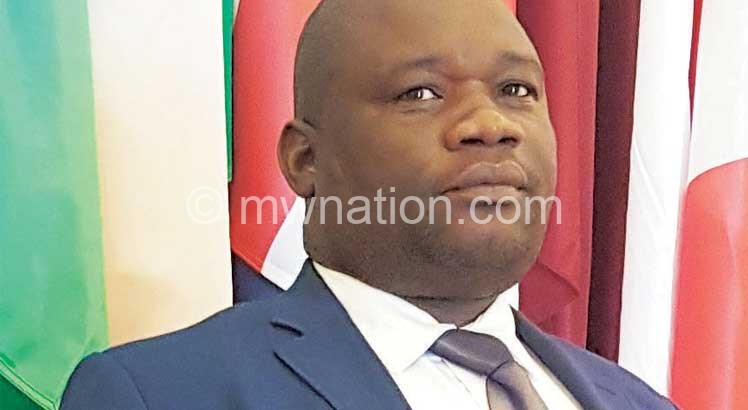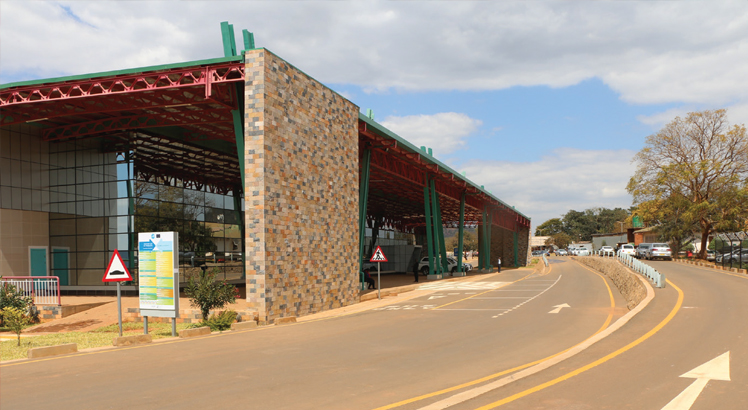China financial pledge down 33%, yet to commit to Malawi
Ministry of Finance says Treasury is yet to get feedback on whether China will fund some government projects in the country.
The sentiments come in the wake of a 33 percent cut in China’s financial commitment to Africa for the first time in over a decade.

In an interview on Sunday, Ministry of Finance spokesperson Williams Banda said Treasury can’t for now exactly say whether we will be affected.
He said: “We have submitted some projects to China for support and we are yet to get feedback whether they will be funded.
“We are keeping our fingers crossed as to whether we will be affected or not.We are just waiting until we get feedback.”
In a video address to the Eighth Triennial Forum on China-Africa Cooperation (Focac) held in Senegal on Monday, China President Xi Jinping pledged $40 billion to Africa to be evenly split among credit lines to African financial institutions, investment from Chinese firms, trade financing and International Monetary Fund special drawing rights.
That marked a 33 percent drop from the $60 billion committed at the same summit in 2018, when China only matched the previous event’s pledge.
According to Bloomberg, prior to that, China had doubled its financial commitment to the continent every three years since its 2006 two-day forum, which is Beijing’s main vehicle for managing its relationship with the continent.
As well as the $40 billion, Xi pledged an additional 1 billion doses of desperately needed vaccines to the world’s poorest continent as it battles the new Omicron variant and strives to vaccinate 60 percent of the population by next year.
“We need to put people and their lives first, be guided by science, support waiving intellectual property rights on Covid-19 vaccines, and truly ensure the accessibility and affordability of vaccines in Africa to bridge the immunization gap,” Xi told the forum.
Beijing will also exempt Africa’s least-developed countries from debt incurred in the form of interest-free Chinese government loans due by the end of 2021, the same pledge China made at Focac in 2018.
Focac financial pledges show that China has slashed credit lines by half from $20 billion to $10 billion but removed financing towards grants and interest-free loans, and development financing from $15 billion and $10 billion in 2018, respectively.
China has, however, maintained Chinese investment at $10 billion and increased financing Africa exports by 50 percent from $5 billion to $10 billion as well as introducing IMF special drawing rights at $10 billion.
Malawi has benefited from its relationship with China through, among others, the construction of the Malawi Parliament building, Bingu National Stadium, the Karonga-Chitipa Road, the Bingu International Convention Centre and Hotel, the Malawi University of Science and Technology and the Presidential Villas.
China is also one of Malawi’s top creditors.
As of December 2020, the People’s Republic of China was Malawis fourth top external creditor with external debt of $218.97 million(about K180 billion).
In an interview on Sunday, Malawi University of Business and Applied Sciences associate economics professor Betchani Tchereni observed that the move could affect Malawi’s prospects, especially for infrastructure development which itself would affect the improvement of trade and commerce.
He said: “These resources come in different forms, some of them is human development through postgraduate training, some of it through roads, and ther infrastructure projects. The resources also assist to reduce foreign exchange pressures which we experience especially in lean period.
“So, it is not very good news, but somehow it was expected due to effects of the Covid-19. And this is where we have to work hard in the self-sustainable project.”
Hannah Ryder, chief executive officer of Beijing-based consultancy Development Reimagined, is quoted in the Bloomberg publication as having said the Focac pledge didn’t represent a pullback from the continent.
“it reflected that China was listening to African governments’ request for a different type of engagement,” she said.
Chinese Government committments to Malawi are in the sectors of infrastructure development, agriculture, education, science and technology, among others.






One Comment